If you find yourself struggling with high cholesterol, you're not alone. According to the Centers for Disease Control and Prevention (CDC), almost 94 million U.S. residents aged 20 and older have high total cholesterol levels.
Unfortunately, in many cases, having untreated high cholesterol can lead to serious health issues over time, increasing your risk of heart disease, stroke, and early death. The good news? A few changes to your dietary habits may be all you need to help lower your risk. Read on to discover which habits registered dietitians recommend if you want to lower your cholesterol levels now.
Start your day with oatmeal.
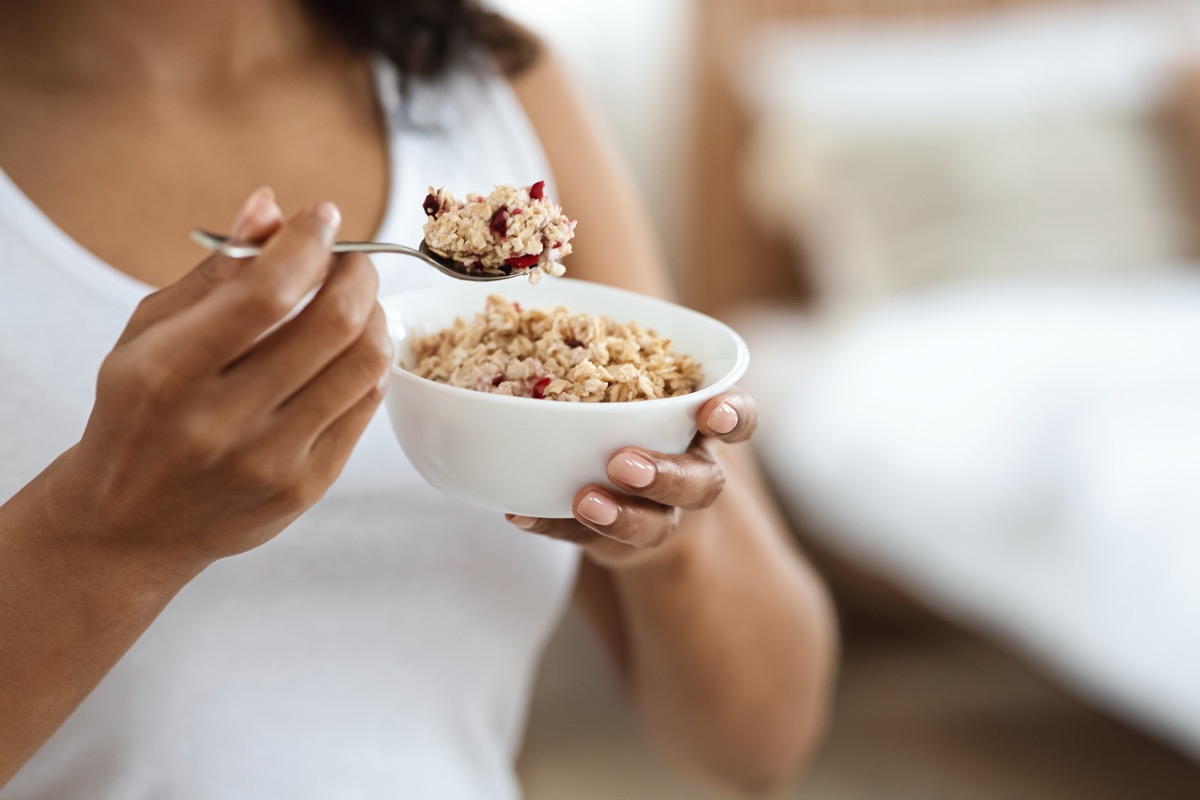
If you want to start every day on a healthier foot, try making oatmeal part of your breakfast routine.
"Beta-glucan is a soluble fiber found in oatmeal that helps lower LDL cholesterol and can make you feel full. As a bonus, oatmeals are also available in different forms, like instant oats and oat groats," explains registered dietitian Kristen Fleming, MS, RD, CNSC, a consultant for BetterMe.
Increase your intake of unsaturated fats.
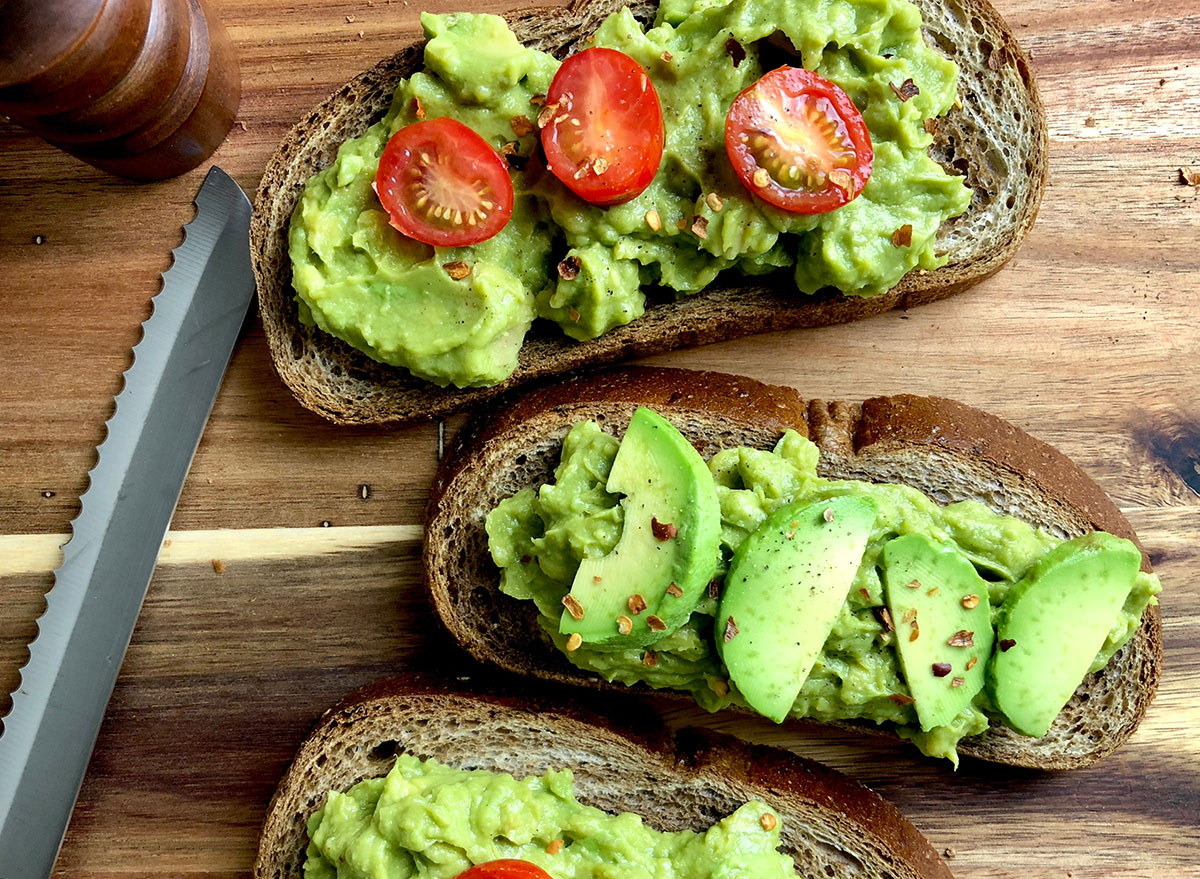
While saturated fats can increase your cholesterol levels, adding some unsaturated fats to your diet may have the opposite effect.
"Unsaturated fats are actually beneficial because they lower overall cholesterol and blood pressure while still providing energy for your body," says Fleming. She notes that omega-3-rich fish, like salmon, mackerel, and tuna; nuts like almonds, Brazil nuts, and walnuts; and vegetable oils, including sunflower, olive, corn, and walnut oils, are all good sources of unsaturated fat.
Stick to more vegetarian protein sources.
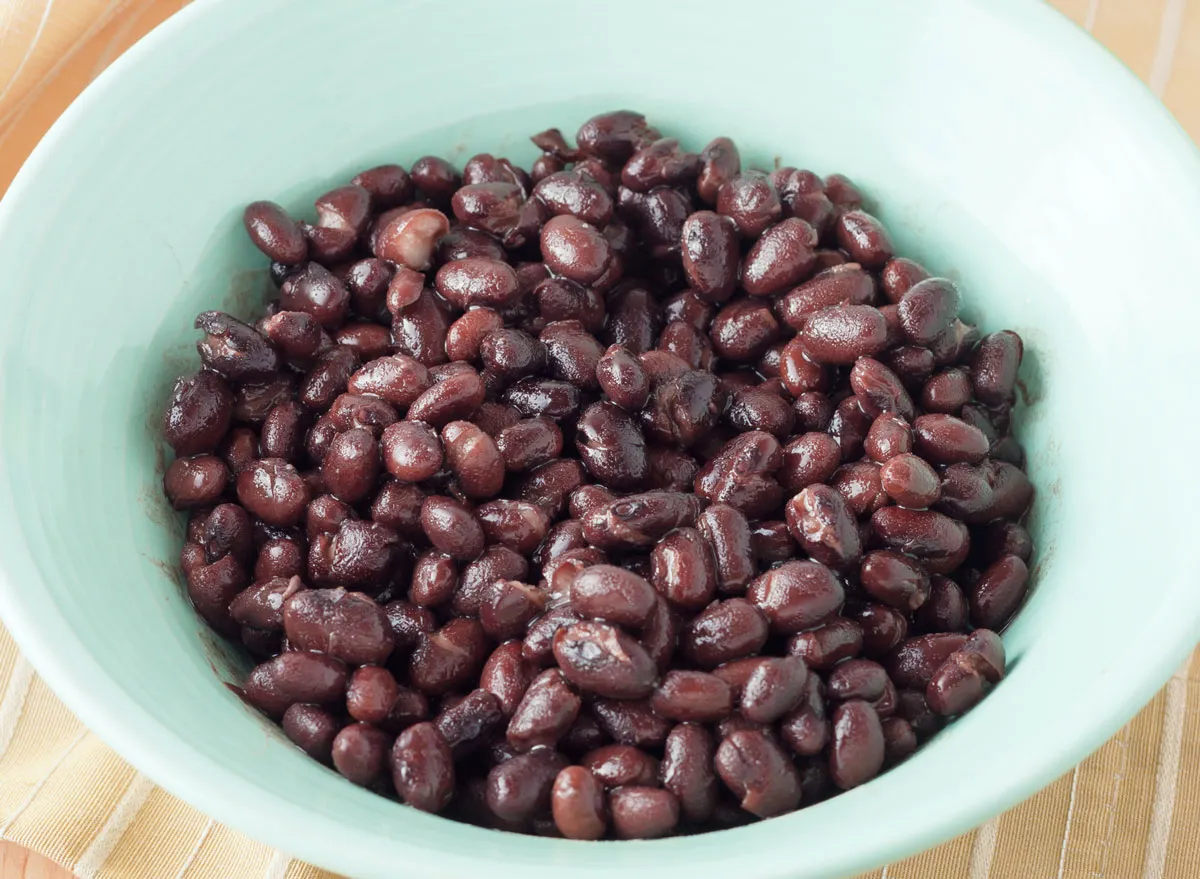
If you typically eat a meat-heavy diet, adding a few more vegetarian or vegan dishes to your meal plan could help get your cholesterol levels under control fast.
"A vegetarian lifestyle not only helps you shed off excess pounds, but it also helps lower your LDL cholesterol as well," says Fleming, citing a study published in The American Journal of Clinical Nutrition. In doing so, "The risk for heart problems like high blood pressure and heart disease can be decreased significantly," Fleming adds.
Increase your fiber intake.
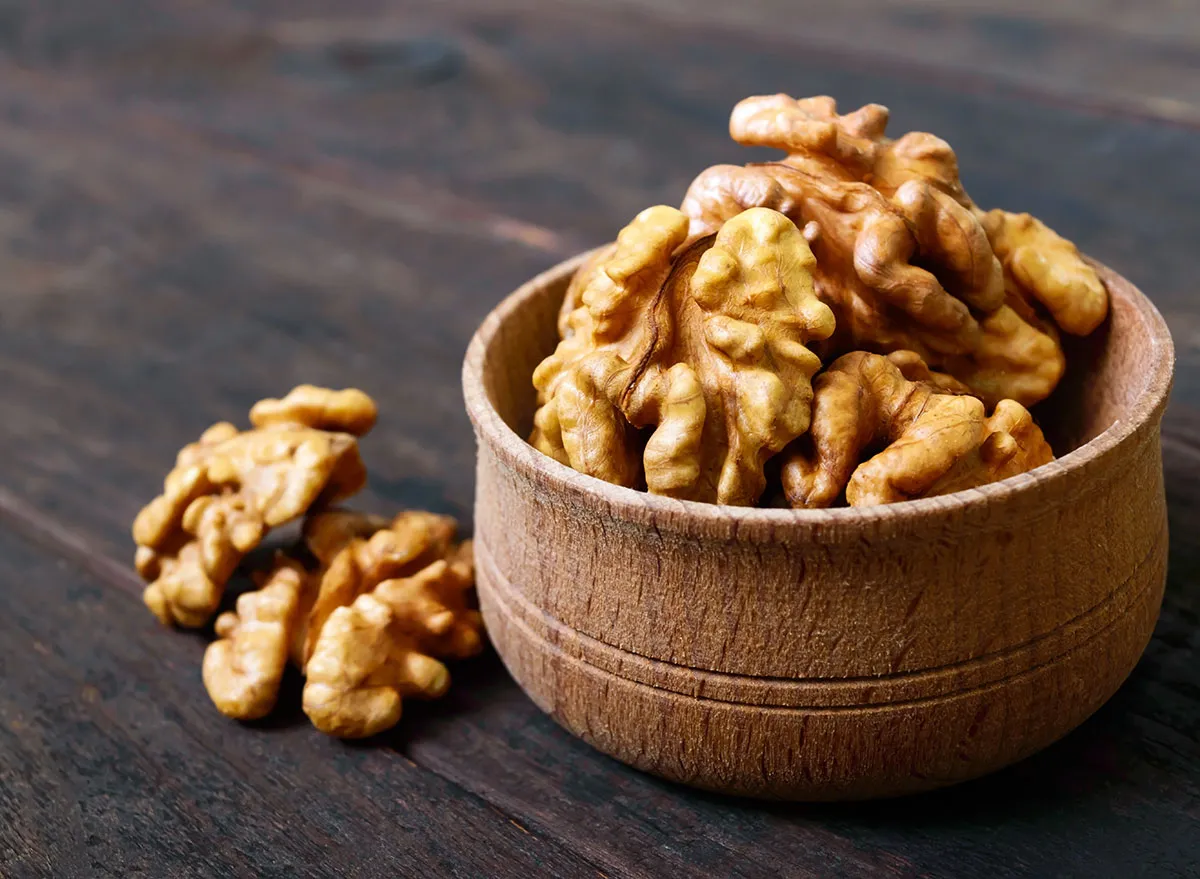
Not only is fiber filling, but it's a great way to help get your cholesterol levels down in a hurry.
"The fibers in whole grains, beans, nuts, seeds, fruits, and vegetables are known for helping to reduce cholesterol and should be a part of your varied diet," says Eleana Kaidanian, RD, CDN, CPT-WFS, registered dietitian and owner of Long Island Nutritionist. "In general, you want to aim for high fiber as much as possible…Soluble fibers are powerful as they have the ability to absorption of cholesterol into your bloodstream, specifically it can bind with cholesterol in the intestines and prevents its absorption."
Try incorporating intermittent fasting into your routine.
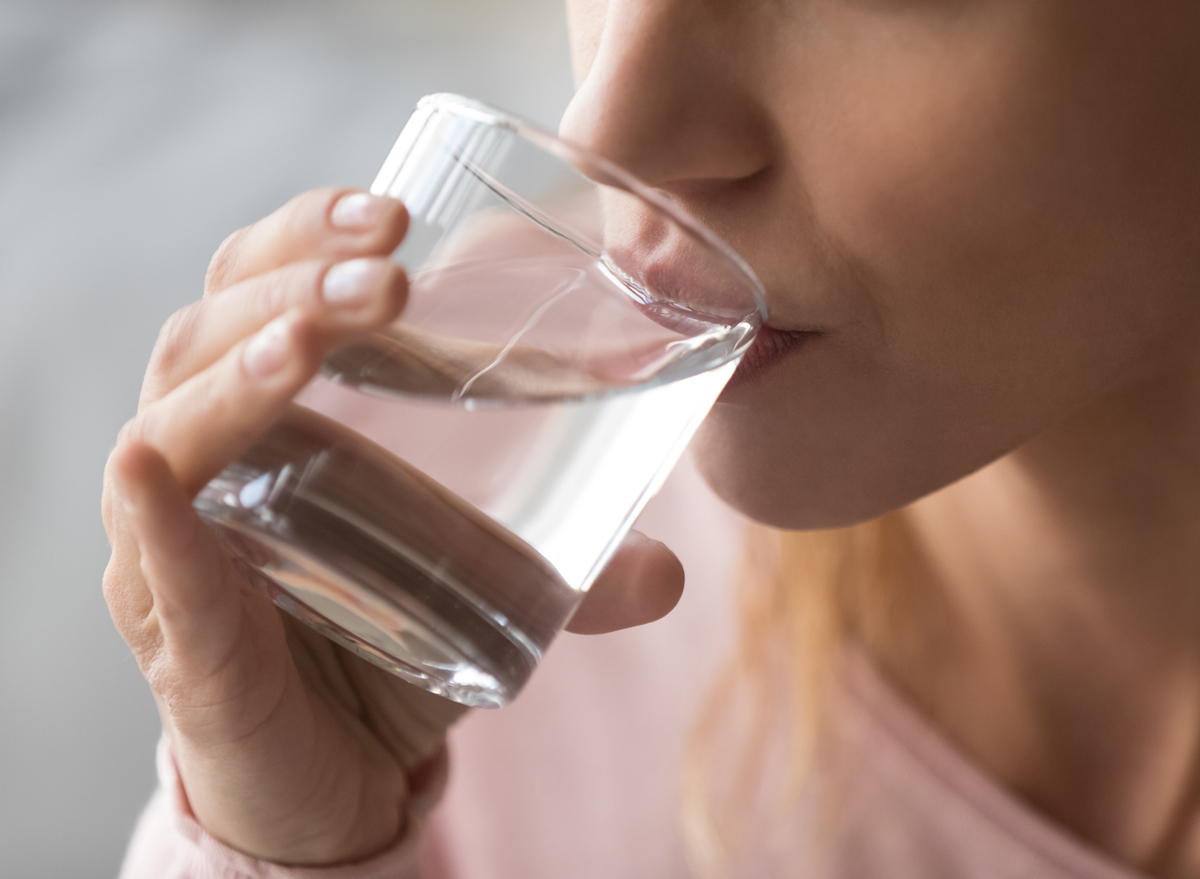
If you've got high cholesterol, practicing intermittent fasting might just be the easiest way to get your LDL and HDL numbers into healthier territory in no time.
"Preliminary research shows that intermittent fasting may be a strategy to lower total cholesterol and bad LDL(bad) cholesterol and raise good HDL cholesterol," says Dawn Jackson Blatner, RDN, CSSD, citing a 2018 study published in Clinical Nutrition ESPEN.
If you're thinking of incorporating fasting into your routine, Blatner notes that a 16-8 fasting period, in which you eat for eight hours and drink only water for 16, is a popular and sustainable method for many people.
No comments:
Post a Comment